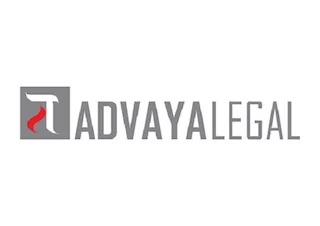In an important development for the 'right to be forgotten', the Delhi High Court recently ordered the removal of one of its own judgments from easy access.1 The petitioner was acquitted of certain crimes by the court and the judgment was freely accessible on the Internet. Unhappy with this, the petitioner sought removal of the judgment from a leading database platform and search engines. The Delhi High Court, as a temporary injunction, ordered search engines to remove the acquittal judgement from search results, and ordered the database platform to block the judgment from being accessed by search engines. The High Court recognised that the petitioner may have a right to be forgotten, which must be balanced with the right of the public to access courts of record.
The right to be forgotten is, generally, the right to have information about a person removed from public access. The proponents argue that individuals should be able to determine the development of their life in an autonomous way. People cannot be perpetually stigmatised for past conduct.
In 2017, the Supreme Court recognised the right to be forgotten as being under the ambit of the right to privacy (specifically, informational privacy) under the Indian Constitution.2 It observed that if someone desired to remove personal data from the virtual space, it ought to be respected.3 The top court observed that a lot of personal information may serve no "legitimate interest", was "incorrect", or was not "necessary" or "relevant".4 However, the right to be forgotten was subject to reasonable restrictions based on countervailing rights like free speech.5 But, despite the Supreme Court's judgment, the right remains underdeveloped in India.
For now, individuals may request data hosts to take down some content, and it may be taken down based on the policies of the respective hosts. For example, some embarrassing selfies that a person posted as a minor may violate the terms of service. These photos may be taken down if so requested because they not only violate terms of service but are also unnecessary and irrelevant. However, if these photos have since become part of, say, a scientific study on Internet usage patterns by teens, or maybe the person now holds a prominent government office, they now serve a public purpose.
There is a general consensus that people should be allowed to modify or delete information uploaded by themselves. However, whether this extends to information uploaded by third parties is uncertain. Take for instance a news article reporting an accusation of sexual harassment against a public figure. If the person was never convicted, should they continue to bear the infamy? Is abhorrent conduct reportable only if there is a legal proceeding to support it?
Perhaps there is a lesson in the American civil rights movement. Back then, some governments filed defamation claims against newspapers to disincentivise them from reporting violence against protesters. In one of these cases, The New York Times was held liable to pay $500,000 (a king's ransom in 1962) by an Alabama court for some errors in their content. In appeal, the U.S. Supreme Court intervened in New York Times Co. v. Sullivan (1964), and ruled that public interest reporting may continue without fear as long as it did not intentionally or recklessly make outright false statements. Thus, the court disallowed suppression of criticism and accountability, especially against powerful figures.
The case has been cited by the Indian Supreme Court several times. Nonetheless, several courts in India have ordered take-down of unflattering news articles pertaining to legal proceedings, redaction of names of litigants, and removal of references from search results.6 However, this is perhaps the first instance of a court ordering the removal of access to its complete final judgment from certain spaces.7
While there may be significant merit to the right to be forgotten, whether it extends to the removal of judgments of courts of record is uncharted territory. Judgements are published for good reasons. Trials held under public scrutiny act as a check against judicial caprices and serve as an instrument for enhancing the confidence of the public in the fairness and objectivity of the administration of justice.8 Hence, courts have routinely waxed eloquent that access to justice can never be complete without the litigant being able to see, hear and understand the course of proceedings first hand.9 Moreover, as judgements of courts of record are binding on all subordinate courts, some other accused could have found it to argue her acquittal.
The wrong that the Delhi High Court sought to correct could have been achieved by narrow tailoring. The court could have ordered that the name and personal details of the petitioner be redacted while maintaining public access to the judgment itself. Unaware of the Streisand effect, the Court names the petitioner repeatedly in its interim order, while removing the acquitting judgment from easy access. The issue has been listed for a final hearing and the outcome is keenly awaited.
A version of this Article was first published in The Hindu on June 17, 2021; available at https://www.thehindu.com/opinion/op-ed/acquitted-but-not-forgotten/article34834341.ece
Footnotes
1. Civil Misc. Application No. 11767 of 2021 in Writ Petition (Civil) No. 3918 of 2021
2. Justice K. S. Puttaswamy (Retd.) v. Union of India, (2017) 10 SCC 1 ("Puttaswamy")
3. Puttaswamy, at para. 69
4. Puttaswamy, at para. 69
5. Puttaswamy, at para. 69
6. Some of the cases addressing these issues include- (i) Zulfiqar Ahman Khan v. Quintillion Business Media, 2019 (175) DRJ 660; (ii) Vasunathan v. The Registrar General, High Court of Karnataka, 2017 SCC OnLine Kar 424; (iii) Subhranshu Rout v. State of Odisha, 2020 SCC OnLine Ori 878; and (iv) Sri Vasunathan v. The Registrar General, 2017 SCC OnLine Kar 424
7. The Delhi HC ordered only the parties to the proceedings. For now, the judgement remains accessible on High Court's own website and on other databases.
8. Naresh Shridhar Mirajkar v. State of Maharashtra, (1966) 3 SCR 744, at para. 20: "It is well-settled that in general, all cases brought before the Courts, whether civil, criminal, or others, must be heard in open Court. Public trial in open court is undoubtedly essential for the healthy, objective and fair administration of justice. Trial held subject to the public scrutiny and gaze naturally acts as a check against judicial caprice or vagaries, and serves as a powerful instrument for creating confidence of the public in the fairness, objectivity, and impartiality of the administration of justice. Public confidence in the administration of justice is of such great significance that there can be no two opinions on the broad proposition that in discharging their functions as judicial Tribunals, courts must generally hear causes in open and must permit the public admission to the court room."
9. Swapnil Tripathi v. Supreme Court of India, (2018) 10 SCC 639
Advaya Legal is a member of Ally Law, a global law firm network providing sophisticated legal services to major corporations with a sharp focus on value. Its 72 firms include nearly 3,000 lawyers in 100 business centers worldwide. For more information, visit www.ally-law.com.
The content of this article is intended to provide a general guide to the subject matter. Specialist advice should be sought about your specific circumstances.


